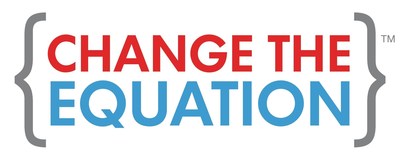New National Survey Sheds Light On How To Better Engage Students In Science Education
06.07.2016
|

The survey found that large majorities of teenagers like science and understand its value, but common teaching methods, such as teaching straight from the textbook, do not bring the subject matter to life in the same way hands-on, real-life experiences do. Several results reveal an opportunity to better engage students in the classroom. For example:
- Eighty-one percent of students are interested in science, and 73 percent expressed interest in biology. However, only 37 percent of teenagers said they like their science classes "a lot." By contrast, 48 percent reported liking non-science classes "a lot."
- Among teenagers who are interested in biology careers, teachers (85 percent) and classes (86 percent) rank right alongside their parents or guardians (87 percent) as the biggest influences on their career decisions.
- Two-way, hands-on learning, like experiments and field trips, are most likely to engage teenage students in biology, followed by tools that help them relate biology to real life. One-way communication, such as class discussions or teaching straight from the book, are least interesting, but among the most common.
"We are in an era where scientific advances provide the opportunity to make meaningful progress against some of the world's most serious diseases," said
The survey also looked beyond the classroom, revealing that most teenagers lack access to additional resources and opportunities to learn more about scientific careers and engage with science professionals—experiences that are critical to developing a lifelong love of science. For example:
- Most survey respondents believe knowing an adult in their field of interest would be helpful, but only 32 percent actually know an adult in a science-based career. And just 22 percent know someone with a job involving biology.
- Only 33 percent of teenagers have ever been involved in a science club or group, either in or out of school. Low-income teenagers are especially unlikely to have been involved, and are more likely to be unaware of extracurricular science offerings.
- Low-income students also have the fewest pathways to science careers. They are less likely to know someone who works in biology (19 percent versus 25 percent of higher-income students) and not as likely to have access to career-planning resources.
"Students who pursue a STEM education today are the innovators who will solve the world's greatest problems tomorrow, whether or not they become scientists or engineers," said
To expand youth access to the nation's best STEM education opportunities, CTEq maintains the STEMworks honor roll of programs that have proven their impact through rigorous third-party review. Over the past two years, CTEq's state and corporate partners, including the
To help science teachers give their students more hands-on learning experiences and insight into career options in and out of the classroom, the
For more information about the survey, visit amgeninspires.com/studentsonstem and join the conversation using #TeensTalkSci. Visit AmgenInspires.com and follow @AmgenFoundation to learn more about our commitment to inspire the next generation of scientists. For more on CTEq, visit changetheequation.org and follow @changeequation.
About the survey
The research was commissioned by the
About the
About Change the Equation
Since 2010, Change the Equation has been championing the value of a good start through K-12 STEM education as a means to build and inspire the next generation of America's workforce. The nonprofit CEO coalition works at the intersection of business and education to ensure that all students are STEM literate by collaborating with schools, communities and states to adopt and implement excellent STEM policies and programs. For more information, visit changetheequation.org and follow us on Twitter @changeequation.
CONTACT:
Amgen Thousand Oaks
Jennifer van der Borgt, 805-447-5597 (media)
Change the Equation
Claus von Zastrow, 202-626-5734


Photo - http://photos.prnewswire.com/prnh/20160606/376158-INFO
Logo - http://photos.prnewswire.com/prnh/20160606/376037LOGO
Logo - http://photos.prnewswire.com/prnh/20160606/376036LOGO
To view the original version on PR Newswire, visit:http://www.prnewswire.com/news-releases/new-national-survey-sheds-light-on-how-to-better-engage-students-in-science-education-300280462.html
SOURCE
